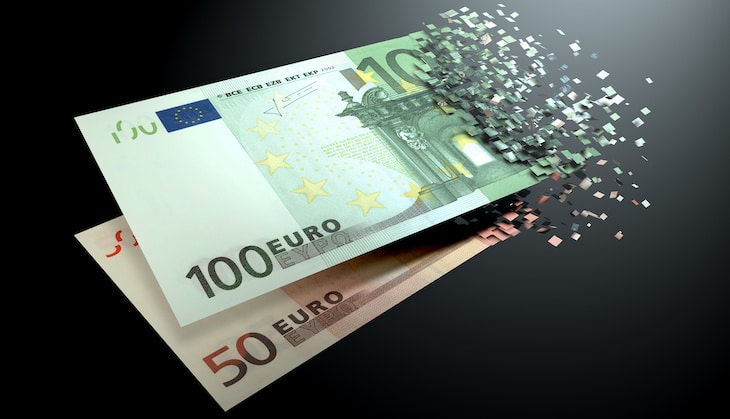The European Commission announced yesterday that it will present a draft law for a digital euro early next year. The legislation will serve as the technical basis for the ECB's creation of a virtual version of the euro, the European currency.
A duel between governments and companies

Big Tech is researching ways to enter the payments market, and central banks around the world are creating virtual money to avoid being marginalized by the growing popularity of cryptocurrencies. One of the first moments of conflict was Facebook's announcement, which a few years ago tried to create a virtual currency with 25 other tech giants.
Although the fierce political backlash repulsed this first attack causing the Facebook project to fail, the event has alarmed governments, and prompted them to act more quickly.
The rush of the digital euro
“Others will fulfill this request if we do not,” he said in mid-November Fabio Panetta, member of the Executive Board of the ECB, to the European Parliamentarians. “You will have a crucial role as co-legislators in introducing a digital euro.” It was like the gun that starts a furious race.
The ECB has already started to conduct internal tests on the digital euro, and plans to start work on a prototype soon. Eurozone governors will then determine whether it is worth "minting": the virtual currency could be ready (in the worst case scenario) in 2025 at the latest.
Doubts and worries
The timetable, although tight, takes into account the negotiations that will be necessary between the states of the Eurozone and in the European Parliament. Now, the main concerns about the future of the digital euro relate to the privacy of transactions and the handling of daily payments.
The EU finance chief Mairead McGuinness announced the Commission's legislative plans last Wednesday: “Our aim is to present the legislation in early 2023,” confirmed the Irishman. “Everything will start from a targeted legislative consultation in the coming weeks”.
The main fear, however, is that the digital euro will destabilize the entire financial system.
Banks are concerned that in the event of a new financial crisis, savers will be able to convert all their deposits into a digital euro (backed by the ECB) at the push of a button. This would cause a monstrous crisis in the sector.
In any case, there will be no way of avoiding the digital euro.
A worldwide trend
Germany and France already have exhorted the ECB to speed up the process for fear that the eurozone will fall behind. The People's Bank of China he started its journey to the digital yuan as early as 2014. India's finance ministry, meanwhile, has promesso to have a virtual version of the late 2022 rupee.
“We have to move forward at full speed. No one will wait for us." he told reporters the German Chancellor Olaf Scholz last year, when he was still finance minister. “I am convinced that eurozone countries must take a more active part in the digital euro process.”
It's not as easy as clicking.


